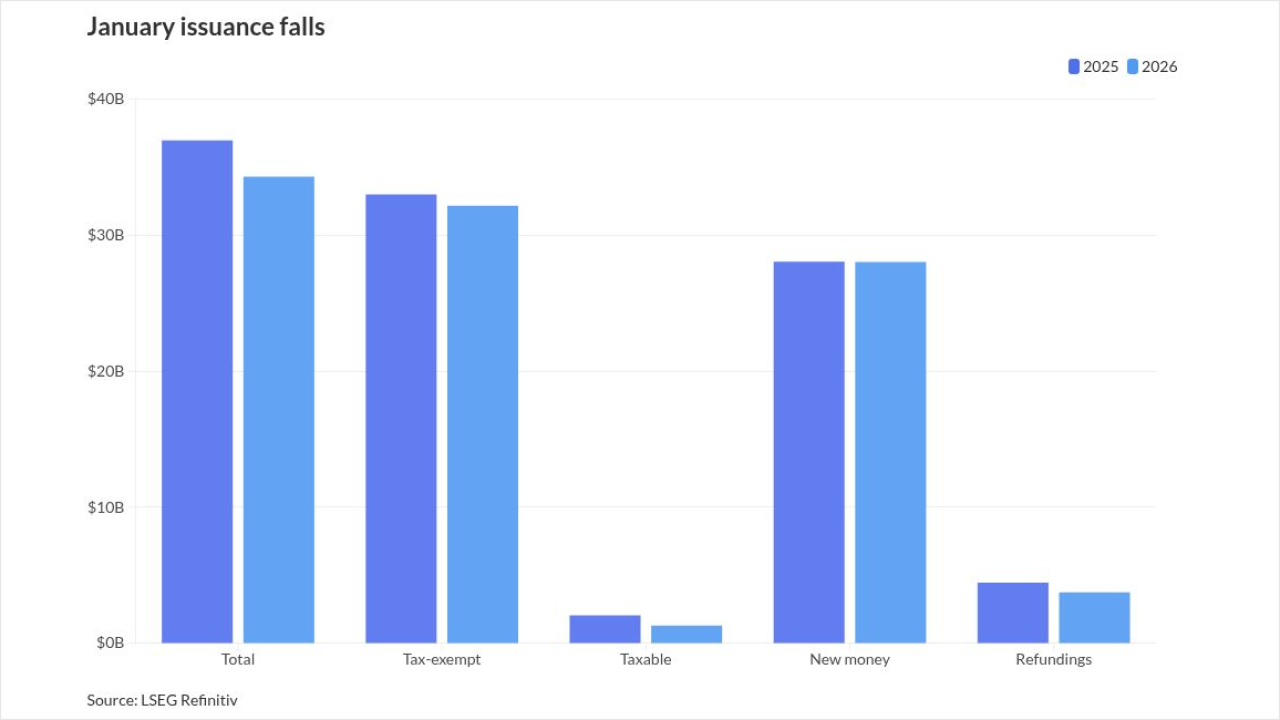New rules went into effect Tuesday to make the $65 billion credit-default swap market for municipal bonds less risky and more efficient for investors.
The rules, implemented by the International Swaps and Derivatives Association, are designed to align the market for muni bond CDS with those that already exist for corporates and sovereigns. They introduce auction settlement terms, a resolution committee and a common standard effective date for muni CDS transactions.
“The changes reduce risk by standardizing terms across the market, and make the product more efficient by facilitating cash settlement following a credit event,” said Mark New, an assistant general counsel in the ISDA legal department.
The rules emerged from the association’s 2012 U.S. Municipal Reference Entity CDS Protocol.
For starters, the protocol creates a centralized auction to determine a final price for CDS contracts. Subsequently, the contracts are settled in cash at the final price.
Previously, if a credit event occurred — defined as either a failure to pay or a restructuring — the parties would deliver notices and physically settle by delivering bonds against payment of the notional amount of the contract, New said.
Second, the protocol created a body, called the Determinations Committee, to decide whether a credit event has occurred, an auction will be held, and a particular obligation is deliverable. The committee consists of dealer and buy-side representatives who make the binding determinations.
The third change concerns what the market called “look-back” dates. Previously, a credit event could be triggered at any time during the life of the CDS contract. But with the look-back dates, there is now a 60-day limit on raising that credit event.
“So, once the credit event occurs, you have 60 days to raise the question to the Determinations Committee,” New said. “Otherwise it essentially expires.”
The new rules could potentially allow the market for muni CDS to develop further, according to John Hallacy, a municipal research strategist at Bank of America Merrill Lynch. “It’s designed to make the market more liquid,” he said.
An adherence period for the protocol ran from March 5 through April 2. The market practice changes set out in the protocol took effect Tuesday for all new trades done under the new market status. For existing trades, the changes will be made to those existing contracts for the 116 parties that have already adhered to the protocol, New said.
A further change the ISDA implemented Tuesday for new trades involves standardized coupons for single-name contracts. While previously, the convention was to trade the contract of a name at whatever the running spread was on the name in question, now there are two standard strikes, at either 100 or 500 basis points a year for protection from default.
Index-based contracts already had standardized coupons. But they are a welcome new development to the market for single-name contracts, said Mikhail Foux, a muni analyst at Citi.
“That’s a big thing, which will make unwinding all contracts much easier,” Foux said. “Single names didn’t have that. That’s one of the big reasons why single-name trading was relatively subdued.”
Not all parties are pleased with new rules that would serve to enliven the muni CDS market. From an issuer’s perspective, there is no good reason to make the muni CDS market more efficient, said Tom Dresslar, a spokesman for California Treasurer Bill Lockyer.
Doing so provides no benefit to issuers and only presents the potential for harm, he added. “The prices, historically, in this market had no relationship to the risk of default,” Dresslar said. “And even if this new protocol produces some reduction in prices, they’d still be pretty much un-tethered from reality. The less activity there is in this market, the better.”





